What I learned from reading Cable Cowboy: John Malone and the Rise of the Modern Cable Business by Mark Robichaux.
--
Support Founders' sponsors:
Tegus is a search engine for business knowledge that's used by founders, investors, and executives. It's incredible what they're building. Try it for free by visiting Tegus.
and
Sam Hinkie's unique venture capital firm 87 Capital. If i was raising money and looking for a long term partner Sam is the first person I would call. If you are the kind of founder that we study on this podcast and you are looking for a long term partner go to 87capital.com
and
Get 60 days free of Readwise. It is the best app I pay for. I couldn’t make Founders without it.
--
[8:00] Thread of highlights from Cable Cowboy by @Loadlinefinance
[8:31] Malone was stalwart about building long term value through leveraged cash flow. Earnings didn’t count. He wasn’t constrained by quarterly expectations.
[8:53] Malone built the pipes, then bought the water that flows through them.
[9:12] Malone took spartan operations to another level. Absolutely no bureaucracy. No waste. We don’t believe in staff. Staff are people who second-guess people.
[9:40] Malone averaged one M&A deal every two weeks over 15 years. That’s insane. These guys were slinging billion dollar deals like bowls of breakfast cereal.
[10:02] One of the best parts of the book is Robichaux’s exploration of Malone’s complex personality. It’s not just a fawning glow piece.
[10:46] The beginning of industries are always filled with cowboys, pirates, and misfits.
[12:05] This book— by far — has been the most requested book for me to cover on Founders for years.
[12:51] Founders episodes on Andrew Carnegie:
Meet You In Hell: Andrew Carnegie Henry Clay Frick, and the Bitter Partnership That Transformed America by Les Standiford. (Founders #73)
The Autobiography of Andrew Carnegie by Andrew Carnegie. (Founders #74)
Founders episodes on JP Morgan:
The House of Morgan: An American Banking Dynasty and the Rise of Modern Finance by Ron Chernow (Founders #139)
The Hour of Fate: Theodore Roosevelt, J.P. Morgan, and the Battle to Transform American Capitalism by Susan Berfield (Founders #142)
[14:37] Mavericks Lecture: John Malone
[15:04] Two Rockefeller podcasts:
Titan: The Life of John D. Rockefeller by Ron Chernow (Founders #248)
John D: The Founding Father of the Rockefellers by David Freeman Hawke (Founders #254)
[18:45] Bob when recruiting John: You've got a great future here. If you can create it.
[19:32] Malone's top executives were rough riders.
[20:49] In 1972 TCI had $19 million in annual revenue and its debt load was an obscene $132 million.
[21:49] Magness learned to listen instead of talk.
Successful people listen. Those who don’t listen, don’t survive long. —Michael Jordan Driven From Within by Michael Jordan and Mark Vancil (Founders #213)
[24:41] That $2,500 loan turns into hundreds of millions of dollars for his grandsons.
[25:47] New employees were asked can you walk 10 miles in 10 below zero weather?
[26:42] The cable companies hardly paid any taxes because of the high depreciation on the equipment.
[28:24] He skimmed the company's numbers, looked up at Betsy and blurted out, I'm gonna hire the smartest son of a bitch I can find.
[30:55] Francis Ford Coppola: A Filmmaker's Life by Michael Schumacher (Founders #242)
[32:26] Once you make a guy rich don’t expect him to work hard. Very unusual people do that.
[33:24] You can identify an opportunity because you have deep knowledge about one industry and you see that there is an industry developing parallel to the industry that you know about. Jay Gould saw the importance of the telegraph industry in part because telegraph lines were laid next to railraod tracks.
Edison: A Biography by Matthew Josephson (Founders #267)
Dark Genius of Wall Street: The Misunderstood Life of Jay Gould, King of the Robber Barons by Edward J. Renehan Jr (Founders #258)
[35:24] 1. You raise money so you can increase production. 2. Use your increased production to get better rates on transportation than other refiners. 3. Use your increased profits —because you have better transportation —to buy your competitors. 4. You continue to find secret sources of income. — John D: The Founding Father of the Rockefellers by David Freeman Hawke (Founders #254)
[36:40] Malone thinks about his industry more than anyone else.
[38:07] He blundered early by suggesting in a meeting that Amazon executives who traveled frequently should be permitted to fly business-class. Jeff slammed his hand on the table and said, “That is not how an owner thinks! That’s the dumbest idea I’ve ever heard.” — The Everything Store: Jeff Bezos and the Age of Amazon by Brad Stone (Founders #179)
[38:58] Our experience has been that the manager of an already high-cost operation frequently is uncommonly resourceful in finding new ways to add to overhead, while the manager of a tightly-run operation usually continues to find additional methods to curtail costs, even when his costs are already well below those of his competitors. — Berkshire Hathaway Letters to Shareholders 1965-2018 by Warren Buffett (Founders #88)
[40:24] FedEx was fearful the bank would try to seize the mortgaged planes. The bank had a young officer keeping track of the situation. Every time he showed up at the airport, we would radio the planes not to land. It was all very touchy. — Overnight Success: Federal Express and Frederick Smith, Its Renegade Creator by Vance Trimble (Founders #151)
[41:14] How John described this point in his career: I'm the head of a little pipsqueak company in debt up to its ass, a couple million dollars in revenue, and not credit worthy to borrow from a bank. We're barely making it.
[42:25] Malone like the mathematics of it. Tax sheltered cash flow could be leveraged to land more loans, to create more tax sheltered cash flow.
[43:52] Stay in the game long enough to get lucky.
[47:05] Bowerman’s response to other coaches: “As a coach, my heart is always divided between pity for the men they wreck and scorn for how easy they are to beat.” —Bowerman and the Men of Oregon: The Story of Oregon's Legendary Coach and Nike's Cofounder by Kenny Moore. (Founders #153)
[49:27] "Forget about earnings. That's a priesthood of the accounting profession," he would preach, unrelentingly. "What you're really after is appreciating assets.”
[50:23] If you control distribution you get equity in return.
[53:04] My Life and Work by Henry Ford (Founders #266)
[54:49] Call Me Ted by Ted Turner
[1:06:33] When picking an industry to enter, my favorite rule of thumb is this: Pick an industry where the founders of the industry—the founders of the important companies in the industry—are still alive and actively involved. — The Pmarca Blog Archive Ebook by Marc Andreessen (Founders #50)
—
“I have listened to every episode released and look forward to every episode that comes out. The only criticism I would have is that after each podcast I usually want to buy the book because I am interested so my poor wallet suffers. ” — Gareth
Be like Gareth. Buy a book: All the books featured on Founders Podcast
More Episodes
#165 William Shockley (Creator of the Electronic Age)
 2021-02-01
2021-02-01
#164 Robert Goddard (Rocket Man)
 2021-01-25
2021-01-25
#163 Alfred Nobel
 2021-01-18
2021-01-18
#162 Chuck Yeager
 2021-01-11
2021-01-11
#161 Dr. Seuss
 2021-01-04
2021-01-04
#160 Peter Cundill
 2020-12-28
2020-12-28
#159 Andy Grove (Intel)
 2020-12-21
2020-12-21
#158 Walt Disney (Disneyland)
 2020-12-14
2020-12-14
#157 The Innovators: How a Group of Hackers, Geniuses, and Geeks Created the Digital Revolution
 2020-12-07
2020-12-07
#156 Theodore Roosevelt
 2020-11-30
2020-11-30
#155 Jeff Bezos (Shareholder Letters and Speeches)
 2020-11-23
2020-11-23
#154 Charles Schulz (Charlie Brown)
 2020-11-19
2020-11-19
#153 Bill Bowerman (Nike)
 2020-11-12
2020-11-12
#152 Katherine Graham (Washington Post)
 2020-11-05
2020-11-05
#151 Frederick Smith (FedEx)
 2020-10-29
2020-10-29
#150 Sam Walton (America's Richest Man)
 2020-10-24
2020-10-24
#149 The Big Rich (Oil Billionaires)
 2020-10-18
2020-10-18
#148 John D. Rockefeller (Autobiography)
 2020-10-11
2020-10-11
#147 Sam Colt
 2020-10-05
2020-10-05
#146 Milton Hershey (Chocolate)
 2020-09-27
2020-09-27
Create your
podcast in
minutes
- Full-featured podcast site
- Unlimited storage and bandwidth
- Comprehensive podcast stats
- Distribute to Apple Podcasts, Spotify, and more
- Make money with your podcast
It is Free
You may also like

The Business Of

The Everyday Millionaire

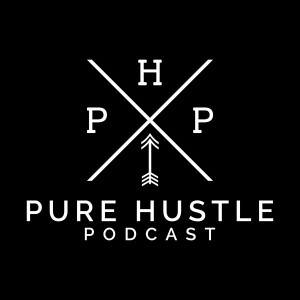
Pure Hustle Podcast

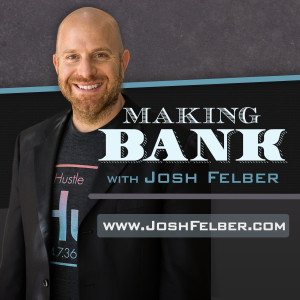
Making Bank

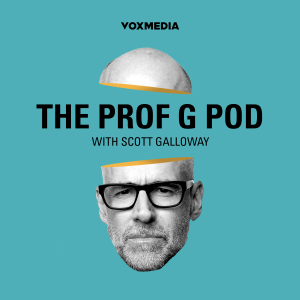
The Prof G Pod with Scott Galloway

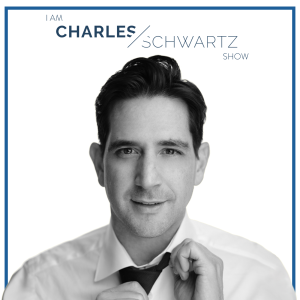
I am Charles Schwartz Show


- Privacy Policy
- Cookie Policy
- Terms of Use
- Consent Preferences
- Copyright © 2015-2024 Podbean.com

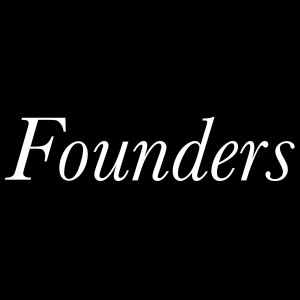

 iOS
iOS Android
Android